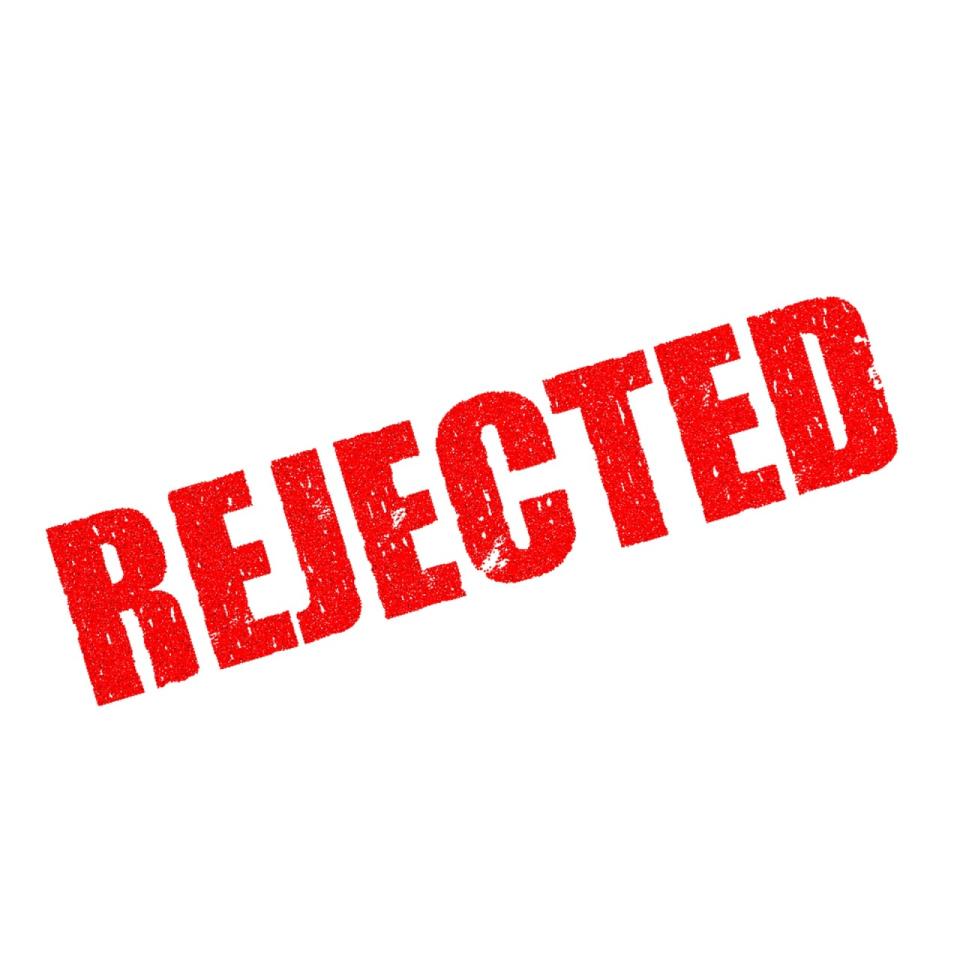The price of rejection
Even the most successful and confident people can get rattled when rejected. Day after day, we learn more about how even our role models struggled with the rejections they received early in their careers.
One of the most remarkable stories about the pains of rejection is that shared by Chinese billionaire Jack Ma, fondly dubbed as the “Chinese Jeff Bezos.” In opening up about his early years in the business, the Alibaba founder revealed that countless rejections molded him to become the entrepreneur he is today.
For instance, Ma admitted that he was one of the 24 people who submitted their application when KFC opened in China. Unfortunately, only 23 people were hired. He was the only one rejected.

He also shared how he applied at least 10 times in Harvard – only to be rejected the same number of times. Even the first years of Alibaba had been filled to the bream with rejections as their target investors repeatedly slammed their concept with some completely dismissing their pitches.
Needless to say, Ma rose to the challenge and refused to let his dreams die.
Now, he has become a part owner of the fast-food chain that rejected his application. Meanwhile, his company that had been ridiculed and rejected countless times is now considered a legitimate threat to Amazon.
Inasmuch as this is an inspiring story, not everyone has the capacity to be Jack Ma. But, that doesn’t necessarily mean that we should all just roll over and give up after every “NO” we receive.
Sure. Getting rejected stings. But learning how to deal with it and how to use it to move forward spell the difference between leading a fulfilling and successful life and a drab, “safe,” and unsatisfying one.
Why are you scared of rejection?
Many reasons come to mind when we attempt to determine why people fear rejection. The fear may come from the humiliation you feel afterward. Your self-esteem or tendency to be a perfectionist may also be factors. Your need to constantly seek other people’s approval may be a stumbling block as well.

No matter the reason, rejection has the power to not only push those fears to the surface but also amplify the effects on you.
It’s crucial to identify and understand “why” you’re scared of rejection. Figure out your real fear and focus on that instead of thinking of the aftermath.
Why?
Because knowing what truly scares you – the specific reason – will help you actually determine the best course of action.
Why you shouldn’t be scared of rejection
The key to handling rejection is to use it as your motivation to improve the ways you reach your goals. Instead of wallowing on the “No,” take it as a challenge and determine why your idea got rejected.
This is exactly what Jia Jiang did to conquer his fear of rejection. In his book, Rejection Proof, he reveals how he embarked on a journey to eliminate fear from his life. Doing so helped Jiang to stop it from paralyzing him to set his plans into motion.
How? Simple. Jiang vowed to seek rejection for 100 days.
It’s crazy, isn’t it? But believe it or not, his experiment worked. In fact, this had been so widely applauded that Zappos founder and author of Delivering Happiness, Tony Hsieh, personally selected Jiang to deliver a keynote speech to his company.

In his first attempt to get rejected, Jiang opted to ask for money from a janitor in the building where he worked. He also elected to record the interaction on video to analyze later on. Almost immediately, his request for cash was rejected. After which, Jiang scrammed and ran away from the place with his rejection in tow.
Upon watching his first attempt, Jiang noted that he looked so scared and worried even before he made the request.
More interestingly, he realized that he had been incredibly focused on simply getting his “No” that he failed to register the look of genuine interest and concern from the janitor. In his analysis, he realized that he could have had a better chance of getting a “Yes” if he only took the time to explain his request better.
His experiment took a surprising twist later on when he actually got a “Yes” for one of his ridiculous requests. Not expecting any positive outcome for his request to get a box of doughnuts arranged in the design of the Olympic rings, Jiang was speechless when the manager of the Krispy Kreme he visited actually agreed to do it.
What surprised him more was that the manager gave the box of doughnuts to him for free simply because his request challenged her and made her realize that she had skills she failed to appreciate in the past. After posting the clip of this encounter, Jiang’s experiment went viral online.
This encounter gave him a precious lesson. He realized that there are people out there who are willing to support his ideas as long as he shares with them the “why” behind it.
This realization led to another epiphany for Jiang. He realized that after every rejection, he simply walks away from the encounter without asking the crucial question: “Why was he rejected?”
So in his succeeding experiments, Jiang made sure to ask the question after he got rejected. To his surprise, most of his rejections were rooted on reasonable grounds.
For example, his request to make the announcement in an aircraft was rejected because the law dictates that only trained personnel are allowed to do that. However, the crew gave him a counter offer which is to allow Jiang to greet the boarding passengers since this does not require any certification.
Along the way, Jiang realized that getting your idea rejected might just be paving the way for new and better plans to emerge.
Jiang’s journey, no matter how bizarre it seemed at first, proved one thing: rejections do not define your success. What truly matters is the way you come back up every time you get a “No.”
Conclusion
Being an entrepreneur is tough – and a profession not for the faint of heart. If you have a weak stomach and extremely sensitive feelings, then this line of work might not be the best option for you. Regardless of the level of your success, hearing the word “NO” remains a staple in your life in the industry.

In fact, it does not matter if you’re Elon Musk, Bill Gates, or Mark Cuban. In one way or another, you will get rejected. Simply put, rejection is a crucial component of the trade.
Besides, if starting and succeeding in business is so easy, then everyone would be joining the bandwagon. So perhaps we can look at rejection as a tool to weed out the weak from the strong and deserving.
Check out this article and other similar posts on my Finance Blog.
